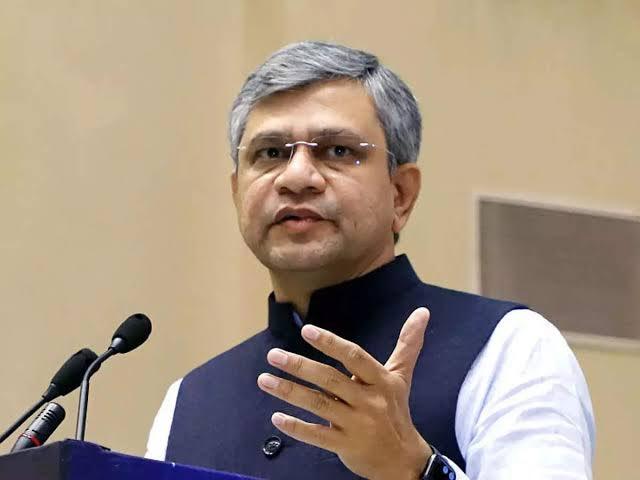In a significant move, the Union Cabinet has sanctioned the establishment of the 8th Pay Commission to review and update the salaries of Central government employees and the allowances for pensioners.

In a landmark decision, the Union Cabinet has approved the implementation of the 8th Pay Commission, which aims to revise the salaries of nearly 50 lakh Central government employees. Announced by Union Minister Ashwini Vaishnaw on Thursday, January 16, this move is expected to bring significant changes to the financial wellbeing of these employees. The implementation of the 8th Pay Commission will not only result in salary hikes but also lead to adjustments in the Dearness Allowance (DA), ensuring a more equitable and competitive compensation structure.
Beyond salary revisions, the 8th Pay Commission will focus on updating pensions and allowances for 65 lakh Central government retirees. This long-awaited adjustment addresses the growing demand for a fair and modernized pay scale that reflects current economic realities. Government retirees, who have been anticipating such a revision for years, can now look forward to improved financial security and stability. The revision of pay scales will also aim to bridge the gap between existing benefits and the rising cost of living, offering much-needed relief to pensioners.
The timing of this announcement, just days before the Budget 2025 revelations, has generated a wave of anticipation and optimism among Central government employees and retirees. The Union Cabinet’s approval of the 8th Pay Commission underscores the government’s commitment to the welfare of its workforce, promising a future with enhanced financial prospects and greater economic equity. As the nation awaits further details in the upcoming budget, this development signifies a pivotal moment in the ongoing efforts to ensure fair compensation for government employees and retirees.
Ashwini Vaishnaw has confirmed the Cabinet’s approval of the 8th Pay Commission for Central government employees. However, the exact date for its establishment has yet to be announced, leaving the timeline for its implementation uncertain. This decision is a significant step towards revising the salaries and allowances of government employees, promising future financial adjustments that have been long awaited by many. The anticipation surrounding this development underscores its importance and the impact it will have once the details are finalized and made public.
Due Date for the 8th Pay Commission: What we know so far
1.The Union Minister has shared that the formation of the 8th Pay Commission is expected to take place by 2026. As per reports, the 8th Pay Commission is slated to come into effect on January 1, 2026. This significant development has been long awaited by Central government employees, who are keenly anticipating the revisions to their salaries and allowances that the new pay commission will bring.
2. In addition to this, Ashwini Vaishnaw mentioned that the appointment of the chairman and two members to oversee the rollout of the 8th Pay Commission is imminent. These appointments are crucial for the smooth and efficient implementation of the pay commission’s recommendations, ensuring that the revised pay scales are administered effectively.
3. The decision to establish the 8th Pay Commission was made during a Cabinet meeting chaired by Prime Minister Narendra Modi. This was confirmed by I&B Minister Ashwini Vaishnaw during his announcement. The formation of the pay commission is a key step in addressing the financial needs and expectations of Central government employees, aligning their compensation with the current economic landscape and providing much-needed support to their financial well-being.
He stated, “For your awareness, our Prime Minister has approved the establishment of the 8th Central Pay Commission for all Central government employees.”
Ashwini Vaishnaw elaborated that the formation of the new Pay Commission in 2025 is strategically planned to ensure that its recommendations are received well before the conclusion of the seventh pay panel’s term. This proactive approach aims to facilitate a seamless transition and timely implementation of the new pay scales. Vaishnaw also emphasized that extensive consultations will be conducted with central and state governments, as well as other key stakeholders, to gather comprehensive input and ensure that the commission’s recommendations are well-informed and balanced. This collaborative effort underscores the government’s commitment to addressing the financial needs and expectations of its employees through a thorough and inclusive process.
What Changes Did the 7th Pay Commission Bring?
1. Employee unions initially demanded a fitment factor of 3.68 for the salary revision under the 7th Pay Commission. However, the government opted for a lower fitment factor of 2.57. The fitment factor is essentially a multiplier used for calculating salaries and pensions, directly impacting the financial benefits of government employees and retirees.
2. As a result of the approved fitment factor, the minimum basic pay for government employees was significantly increased to ₹18,000 per month, compared to the previous ₹7,000 under the 6th Pay Commission. Additionally, the minimum pension saw a substantial rise from ₹3,500 to ₹9,000. The maximum salary was set at ₹2,50,000, and the maximum pension at ₹1,25,000, providing considerable financial improvements for the beneficiaries.
3. The 7th Pay Commission was established in 2016, and its term is scheduled to conclude on December 31, 2025. In anticipation of this, the decision has been made to set up the 8th Pay Commission to further revise and update the salaries and allowances of Central government employees. This proactive step aims to ensure a smooth transition and continuity in addressing the financial needs and expectations of government employees as the new pay scales come into effect.
Who Stands to Gain from the 8th Pay Commission?
1. The pay commission is instrumental in defining the salary structures, allowances, and other benefits for government employees, with its recommendations affecting millions of workers and pensioners nationwide. Over 49 lakh Central government employees and nearly 65 lakh pensioners stand to benefit from the 8th Pay Commission’s implementation. Historically, the Central Pay Commissions have been established approximately once every decade to review and propose changes to the pay scales, allowances, and benefits for Central government employees, taking into account various economic indicators, including inflation.
2. Since its inception in 1947, the government has constituted seven pay commissions, each playing a pivotal role in shaping the financial landscape for government employees. The recommendations made by these commissions are generally adopted by most state-owned organizations, further underscoring their significance. The establishment of the 8th Pay Commission follows this tradition, aiming to ensure that the compensation and benefits for government employees remain fair, competitive, and aligned with current economic realities. Through this process, the commission seeks to address the evolving financial needs and expectations of government employees and pensioners, ensuring their continued financial security and well-being.


